- Quote of the Day
- Picture Quotes

Wander Quotes
Standart top banner.
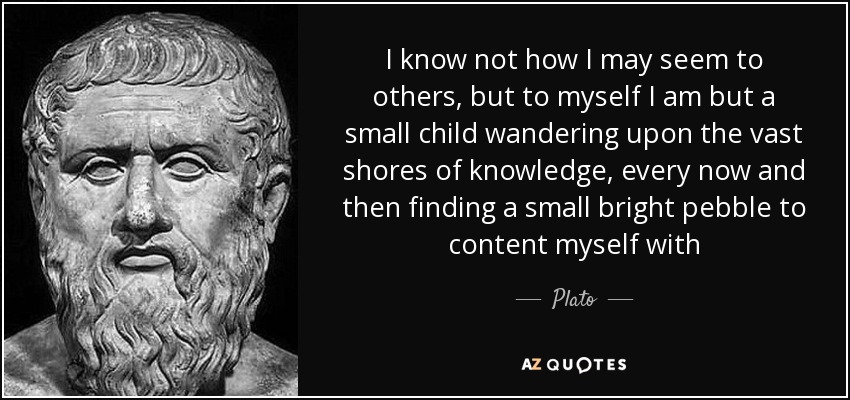
Today's scientists have substituted mathematics for experiments, and they wander off through equation after equation, and eventually build a structure which has no relation to reality.
To live in the world without becoming aware of the meaning of the world is like wandering about in a great library without touching the books.
It is always wonderful to be a curious comet wandering in the galaxy of a good book.
I have wandered all my life, and I have also traveled; the difference between the two being this, that we wander for distraction, but we travel for fulfillment.
A life without purpose is like a novel without a plot. It wanders all over the place, is hard to follow, and in the end, doesn't get particularly good reviews.
Wandering re-establishes the original harmony which once existed between man and the universe.
We wander for distraction, but we travel for fulfillment.
Wilderness has been characterized as barren and unproductive; little can be grown in its sand and rock. But the crops of wilderness have always been its spiritual values - silence and solitude, a sense of awe and gratitude - able to be harvested by any traveler who visits.
Let me drink from the waters where the mountain streams flood Let the smell of wildflowers flow free through my blood Let me sleep in your meadows with the green grassy leaves Let me walk down the highway with my brother in peace Let me die in my footsteps Before I go down under the ground.
We are not responsible for every thought that goes wandering through our mind. We are, however, responsible for the ones we hold there. We're especially responsible for the one's we put there.
Winds are advertisements of all they touch, however much or little we may be able to read them; telling their wanderings even by their scents alone.
Thoughts are like stars in the firmament; some are fixed, others like the wandering planets, others again are only like meteors. Understanding is like the Sun, which gives light to all the thoughts. Memory is like the Moon, it hath its new, its full and its wane.
For the night-wind has a dismal trick of wandering round and round a building of that sort, and moaning as it goes; and of trying, with its unseen hand, the windows and the doors; and seeking out some crevices by which to enter.
Night is a curious child, wandering Between earth and sky, creeping In windows and doors, daubing The entire neighborhood With purple paint.
Think of drawing as a way of talking about the things that interest you. Think of those wonderful documents, drawings made on scraps of paper by the lesser Dutch masters while they were wandering around market places and sitting in saloons.
Even the wildest dreams have to start somewhere. Allow yourself the time and space to let your mind wander and your imagination fly.
It's hard to get lost if you don't know where you're going.
I am not the same having seen the moon shine on the other side of the world. Mary
See the world. It's more fantastic than any dream.
We live in a wonderful world that is full of beauty, charm and adventure. There is no end to the adventures that we can have if only we seek them with our eyes open.
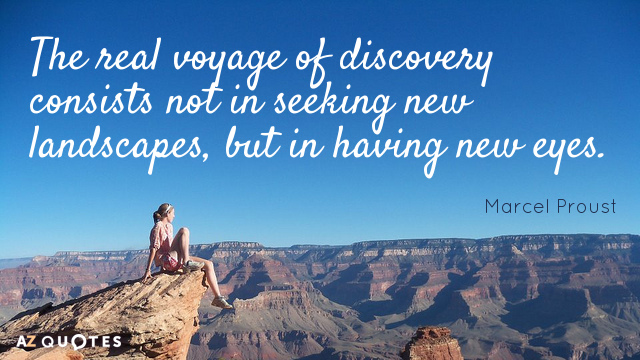
The real voyage of discovery consists not in seeking new landscapes, but in having new eyes.
Coming back to where you started is not the same as never leaving.
We travel, initially, to lose ourselves, and we travel, next, to find ourselves. We travel to open our hearts and eyes. And we travel, in essence, to become young fools again—to slow time down and get taken in, and fall in love once more.
The life you have led doesn't need to be the only life you have.
last adds STANDART BOTTOM BANNER
Send report.
- The author didn't say that
- There is a mistake in the text of this quote
- The quote belongs to another author
- Other error
Top Authors

Get Social with AzQuotes
Follow AzQuotes on Facebook, Twitter and Google+. Every day we present the best quotes! Improve yourself, find your inspiration, share with friends
SIDE STANDART BANNER
- Javascript and RSS feeds
- WordPress plugin
- ES Version AZQuotes.ES
- Submit Quotes
- Privacy Policy
Login with your account
Create account, find your account.
Mind Wandering Quotes
We've searched our database for all the quotes and captions related to Mind Wandering . Here they are! All 100 of them:
Featured Topics
Featured series.
A series of random questions answered by Harvard experts.
Explore the Gazette
Read the latest.

Women who follow Mediterranean diet live longer

Harvard-led study IDs statin that may block pathway to some cancers

New Alzheimer’s study suggests genetic cause of specific form of disease
Harvard psychologists Matthew A. Killingsworth (right) and Daniel T. Gilbert (left) used a special “track your happiness” iPhone app to gather research. The results: We spend at least half our time thinking about something other than our immediate surroundings, and most of this daydreaming doesn’t make us happy.
Kris Snibbe/Harvard Staff Photographer
Wandering mind not a happy mind
Steve Bradt
Harvard Staff Writer
About 47% of waking hours spent thinking about what isn’t going on
People spend 46.9 percent of their waking hours thinking about something other than what they’re doing, and this mind-wandering typically makes them unhappy. So says a study that used an iPhone Web app to gather 250,000 data points on subjects’ thoughts, feelings, and actions as they went about their lives.
The research, by psychologists Matthew A. Killingsworth and Daniel T. Gilbert of Harvard University, is described this week in the journal Science .
“A human mind is a wandering mind, and a wandering mind is an unhappy mind,” Killingsworth and Gilbert write. “The ability to think about what is not happening is a cognitive achievement that comes at an emotional cost.”
Unlike other animals, humans spend a lot of time thinking about what isn’t going on around them: contemplating events that happened in the past, might happen in the future, or may never happen at all. Indeed, mind-wandering appears to be the human brain’s default mode of operation.
To track this behavior, Killingsworth developed an iPhone app that contacted 2,250 volunteers at random intervals to ask how happy they were, what they were currently doing, and whether they were thinking about their current activity or about something else that was pleasant, neutral, or unpleasant.
Subjects could choose from 22 general activities, such as walking, eating, shopping, and watching television. On average, respondents reported that their minds were wandering 46.9 percent of time, and no less than 30 percent of the time during every activity except making love.
“Mind-wandering appears ubiquitous across all activities,” says Killingsworth, a doctoral student in psychology at Harvard. “This study shows that our mental lives are pervaded, to a remarkable degree, by the nonpresent.”
Killingsworth and Gilbert, a professor of psychology at Harvard, found that people were happiest when making love, exercising, or engaging in conversation. They were least happy when resting, working, or using a home computer.
“Mind-wandering is an excellent predictor of people’s happiness,” Killingsworth says. “In fact, how often our minds leave the present and where they tend to go is a better predictor of our happiness than the activities in which we are engaged.”
The researchers estimated that only 4.6 percent of a person’s happiness in a given moment was attributable to the specific activity he or she was doing, whereas a person’s mind-wandering status accounted for about 10.8 percent of his or her happiness.
Time-lag analyses conducted by the researchers suggested that their subjects’ mind-wandering was generally the cause, not the consequence, of their unhappiness.
“Many philosophical and religious traditions teach that happiness is to be found by living in the moment, and practitioners are trained to resist mind wandering and to ‘be here now,’” Killingsworth and Gilbert note in Science. “These traditions suggest that a wandering mind is an unhappy mind.”
This new research, the authors say, suggests that these traditions are right.
Killingsworth and Gilbert’s 2,250 subjects in this study ranged in age from 18 to 88, representing a wide range of socioeconomic backgrounds and occupations. Seventy-four percent of study participants were American.
More than 5,000 people are now using the iPhone Web app .
Share this article
You might like.
Large study shows benefits against cancer, cardiovascular mortality, also identifies likely biological drivers of better health

Cholesterol-lowering drug suppresses chronic inflammation that creates dangerous cascade

Findings eventually could pave way to earlier diagnosis, treatment, and affect search for new therapies
When should Harvard speak out?
Institutional Voice Working Group provides a roadmap in new report

- 41 Quotes About Wandering for Travelers, Thinkers and Flâneurs
- October 14, 2023

FREE DOWNLOAD: 20 QUESTIONS THAT WILL CHANGE YOUR LIFE(STYLE)
A simple roadmap for setting up a life you don’t need to escape from.
- Killer Quotes

Living a pre-planned, predictable life is a prison sentence for many. If you feel the need escape routine and the idea of exploring new places without a set itinerary sounds appealing to you, then this collection of quotes about wandering is for you. Inspire your wanderlust and set yourself free on a new adventure.

Flâneur Life Team
No one knows the pleasure of wandering quite like a flâneur. Whether you’re aimlessly meandering through new streets or purposely exploring off the beaten path, there’s something inherently satisfying about discovering what lies beyond your comfort zone. And if you’re looking for a bit of inspiration, we’ve got you covered – here are some of our favorite quotes about wandering from famous adventurers and explorers. Bon voyage !
Quotes About Wandering
Real travel requires a maximum of unscheduled wandering, for there is no other way of discovering surprises and marvels, which, as I see it, is the only good reason for not staying at home. Alan Watts

By experience we find out a short way by a long wandering . Roger Ascham
Time is the deepest wilderness in which we wander. Christopher Cokinos
Wandering flushes a glory that fades with arrival. J. A. Baker
Instead of insight, maybe all a man gets is strength to wander for a while. William Least Heat-Moon
I know not how I may seem to others, but to myself I am but a small child wandering upon the vast shores of knowledge, every now and then finding a small bright pebble to content myself with Plato

People travel to wonder at the height of the mountains, at the huge waves of the seas, at the long course of the rivers, at the vast compass of the ocean, at the circular motion of the stars, and yet they pass by themselves without wondering. St. Augustine
The wandering photographer sees the same show that everyone else sees. He, however, stops to watch it. Edouard Boubat
Not all those who wander are lost. J.R.R. Tolkien
Wander a whole summer if you can. Time will not be taken from the sum of life. Instead of shortening, it will definitely lengthen it and make you truly immortal. John Muir
Though we travel the world over to find the beautiful, we must carry it with us, or we find it not. Ralph Waldo Emerson

The mind can wander while still focusing on one task. Herbert Benson
Wandering re-establishes the original harmony which once existed between man and the universe. Anatole France
One’s destination is never a place, but a new way of seeing things. Henry Miller
I’ll never stop wandering. And when the time comes to die, I’ll find the wildest, loneliest, most desolate spot there is. Everett Ruess
Meandering leads to perfection. Lao Tzu

So we follow our wandering paths , and the very darkness acts as our guide and our doubts serve to reassure us. Jean Pierre
It is not easy to walk alone in the country without musing upon something. Charles Dickens
We ought to take outdoor walks, to refresh and raise our spirits by deep breathing in the open air. Lucius Annaeus Seneca
We wander for distraction, but we travel for fulfillment. Hilaire Belloc
Above all, do not lose your desire to walk . Every day I walk myself into a state of well-being and walk away from every illness. I have walked myself into my best thoughts, and I know of no thought so burdensome that one cannot walk away from it. Søren Kierkegaard

Improvising musicians are musical travelers, voyagers. There is a freedom to wander the musical landscape. Gary Burton
Take a few minutes of every day to fantasize about how you would wander, travel, or explore if you could. Wayne Dyer
The real voyage of discovery consists not in seeking new landscapes, but in having new eyes. Marcel Proust
Trees go wandering forth in all directions with every wind, going and coming like ourselves, traveling with us around the sun two million miles a day, and through space heaven knows how fast and far! John Muir
My father considered a walk among the mountains as the equivalent of churchgoing. Aldous Huxley

A world of colors on the palette remaining…wandering…on canvases still emerging. Wassily Kandinsky
Do not allow yourself to lose sight on the way to your future, while wandering in the darkness of the past. Lucas Hunter
Wandering between two worlds, one dead, The other powerless to be born. Matthew Arnold
The sum of the whole is this: walk and be happy, walk and be healthy. Charles Dickens
Me thinks that the moment my legs begin to move, my thoughts begin to flow. Henry David Thoreau

Before, I wandered as a diversion. Now I wander seriously and sit and read as a diversion. Walker Percy
When you have worn out your shoes, the strength of the sole leather has passed into the fibre of your body. I measure your health by the number of shoes and hats and clothes you have worn out. He is the richest man who pays the largest debt to his shoemaker. Ralph Waldo Emerson
The world is vast and meant for wandering. There is always somewhere else to go. Nick Burd
I took a walk in the woods and came out taller than the trees. Henry David Thoreau
Walking is also an ambulation of mind. Gretel Ehrlich

But in every walk with nature one receives far more than he seeks. John Muir
Early one morning, any morning, we can set out, with the least possible baggage, and discover the world. Thomas Clark
I can just let my curiosity wander unleashed. James C. Collins
Walking is man’s best medicine. Hippocrates
Perhaps the truth depends on a walk around the lake. Wallace Stevens
A Final Word
So there you have it! We hope this collection of quotes about wandering have shown you how travel is a great way of discovering your way. And while we can all agree it’s important to have goals at time, sometimes you just need to wander for awhile before you figure out what those are! If that sounds like something you could use right now, here are some of the best cities in the world to wander around on foot .
What’s your favorite quote about wandering? Leave a comment below!
If you enjoyed this, you might also like these related quote collections:
- Quotes About Experimentation
- Quotes About Walking
- Quotes About the Subconscious Mind
- Quotes About Life Direction
- Quotes About Exploration
Our website is supported by our users. We may earn a small commission when you make a purchase through links on our site at no additional cost to you.
Leave a Reply Cancel reply
This site is protected by reCAPTCHA and the Google Privacy Policy and Terms of Service apply.

Let’s Connect
Blog CATEGORIES
MOST RECENT Posts
Gold LIRA: How to Buy Gold With a Locked-in Retirement Account
Where to buy gold in canada: a trusted buyer’s guide, gold tfsa: how to hold gold in your tax-free savings account, gold rrsp in canada: everything you need to know.

Ready to create your own freedom?
Kickstart your journey towards autonomy today.
To propel you forward, we’ve created a complimentary 7-day, 7-minute series – a daily challenge in Choose-Your-Own-Adventure style! Immerse yourself in the wealth of tools and tactics essential to crafting your own life of freedom, regardless of where you’re starting from.
Simply click the button below to sign up completely free!
- Related Posts

8 Books About Flâneurs to Embrace the Art of Urban Wandering

Discovering Hidden Gems While Traveling: An Adventurer’s Guide

How to Maximize Your Time Traveling: A Flâneur’s Pocket Book

TED is supported by ads and partners 00:00

How to tame your wandering mind
- mindfulness
November 24, 2010
A Wandering Mind is an Unhappy One
New research underlines the wisdom of being absorbed in what you do
By Jason Castro
We spend billions of dollars each year looking for happiness, hoping it might be bought, consumed, found, or flown to. Other, more contemplative cultures and traditions assure us that this is a waste of time (not to mention money). ‘Be present’ they urge. Live in the moment, and there you’ll find true contentment.
Sure enough, our most fulfilling experiences are typically those that engage us body and mind, and are unsullied by worry or regret. In these cases, a relationship between focus and happiness is easy to spot. But does this relationship hold in general, even for simple, everyday activities? Is a focused mind a happy mind? Harvard psychologists Matthew Killingsworth and Daniel Gilbert decided to find out.
In a recent study published in Science, Killingsworth and Gilbert discovered that an unnervingly large fraction of our thoughts - almost half - are not related to what we’re doing. Surprisingly, we tended to be elsewhere even for casual and presumably enjoyable activities, like watching TV or having a conversation. While you might hope all this mental wandering is taking us to happier places, the data say otherwise. Just like the wise traditions teach, we’re happiest when thought and action are aligned, even if they’re only aligned to wash dishes.
On supporting science journalism
If you're enjoying this article, consider supporting our award-winning journalism by subscribing . By purchasing a subscription you are helping to ensure the future of impactful stories about the discoveries and ideas shaping our world today.
The ingredients of simple, everyday happiness are tough to study in the lab, and aren’t easily measured with a standard experimental battery of forced choices, eye-tracking, and questionnaires. Day to day happiness is simply too fleeting. To really study it’s causes, you need to catch people in the act of feeling good or feeling bad in real-world settings.
To do this, the researchers used a somewhat unconventional, but powerful, technique known as experience sampling. The idea behind it is simple. Interrupt people at unpredictable intervals and ask them what they’re doing, and what’s on their minds. If you do this many times a day for many days, you can start to assemble a kind of quantitative existential portrait of someone. Do this for many people, and you can find larger patterns and tendencies in human thought and behavior, allowing you to correlate moments of happiness with particular kinds of thought and action.
To sample our inner lives, the team developed an iPhone app that periodically surveyed people’s thoughts and activities. At random times throughout the day, a participant’s iPhone would chime, and present him with a brief questionnaire that asked how happy he was (on a scale from 1-100), what he was doing, and if he was thinking about what he was doing. If subjects were indeed thinking of something else, they reported whether that something else was pleasant, neutral, or unpleasant. Responses to the questions were standardized, which allowed them to be neatly summarized in a database that tracked the collective moods, actions, and musings of about 5000 total participants (a subset of 2250 people was used in the present study).
In addition to awakening us to just how much our minds wander, the study clearly showed that we’re happiest when thinking about what we’re doing. Although imagining pleasant alternatives was naturally preferable to imagining unpleasant ones, the happiest scenario was to not be imagining at all. A person who is ironing a shirt and thinking about ironing is happier than a person who is ironing and thinking about a sunny getaway.
What about the kinds of activities we do, though? Surely, the hard-partiers and world travelers among us are happier than the quiet ones who stay at home and tuck in early? Not necessarily. According to the data from the Harvard group’s study, the particular way you spend your day doesn’t tell much about how happy you are. Mental presence - the matching of thought to action - is a much better predictor of happiness.
The happy upshot of this study is that it suggests a wonderfully simple prescription for greater happiness: think about what you’re doing. But be warned that like any prescription, following it is very different from just knowing it’s good for you. In addition to the usual difficulties of breaking bad or unhelpful habits, your brain may also be wired to work against your attempts stay present.
Recent fMRI scanning studies show that even when we’re quietly at rest and following instructions to think of nothing in particular, our brains settle into a conspicuous pattern of activity that corresponds to mind-wandering. This signature ‘resting’ activity is coordinated across several widespread brain areas , and is argued by many to be evidence of a brain network that is active by default. Under this view our brains climb out of the default state when we’re bombarded with input, or facing a challenging task, but tend to slide back into it once things quiet down.
Why are our brains so intent on tuning out? One possibility is that they’re calibrated for a target level of arousal. If a task is dull and can basically be done on autopilot, the brain conjures up its own exciting alternatives and sends us off and wandering. This view is somewhat at odds with the Killingsworth and Gilbert’s findings though, since subjects wandered even on ‘engaging’ activities. Another, more speculative possibility is that wandering corresponds to some important mental housekeeping or regulatory process that we’re not conscious of. Perhaps while we check out, disparate bits of memory and experience are stitched together into a coherent narrative – our sense of self.
Of course, it’s also possible that wandering isn’t really ‘for’ anything, but rather just a byproduct of a brain in a world that doesn’t punish the occasional (or even frequent) flight of fancy. Regardless of what prompts our brains to settle into the default mode, its tendency to do so may be the kiss of death for happiness. As the authors of the paper elegantly summarize their work: “a human mind is a wandering mind, and a wandering mind is an unhappy mind.”
On the plus side, a mind can be trained to wander less. With regular and dedicated meditation practice, you can certainly become much more present, mindful, and content. But you’d better be ready to work. The most dramatic benefits only really accrue for individuals, often monks, who have clocked many thousands of hours practicing the necessary skills (it’s not called the default state for nothing).
The next steps in this work will be fascinating to see, and we can certainly expect to see more results from the large data set collected by Killingsworth and Gilbert. It will be interesting to know, for example, how much people vary in their tendency to wander, and whether differences in wandering are associated with psychiatric ailments. If so, we may be able to tailor therapeutic interventions for people prone to certain cognitive styles that put them at risk for depression, anxiety, or other disorders.
In addition to the translational potential of this work, it will also be exciting to understand the brain networks responsible for wandering, and whether there are trigger events that send the mind into the wandering or focused state. Though wandering may be bad for happiness, it is still fascinating to wonder why we do it.
Are you a scientist? Have you recently read a peer-reviewed paper that you want to write about? Then contact Mind Matters co-editor Gareth Cook, a Pulitzer prize -winning journalist at the Boston Globe, where he edits the Sunday Ideas section. He can be reached at garethideas AT gmail.com
Greater Good Science Center • Magazine • In Action • In Education
How to Focus a Wandering Mind
We’ve all been there. You’re slouched in a meeting or a classroom, supposedly paying attention, but your mind has long since wandered off, churning out lists of all the things you need to do—or that you could be doing if only you weren’t stuck here…
Suddenly you realize everyone is looking your way expectantly, waiting for an answer. But you’re staring blankly, grasping at straws to make a semi-coherent response. The curse of the wandering mind!
But don’t worry—you’re not alone. In fact, a recent study by Matthew Killingsworth and Daniel Gilbert sampled over 2,000 adults during their day-to-day activities and found that 47 percent of the time, their minds were not focused on what they were currently doing. Even more striking, when people’s minds were wandering, they reported being less happy.

This suggests it might be good to find ways to reduce these mental distractions and improve our ability to focus. Ironically, mind-wandering itself can help strengthen our ability to focus, if leveraged properly. This can be achieved using an age-old skill: meditation. Indeed, a new wave of research reveals what happens in our brains when our minds wander—and sheds light on the host of cognitive and emotional benefits that come with increased focus.
What happens in the wandering mind?
For something that happens so often, what do we really know about this process of mind-wandering?
For thousands of years, contemplative practices such as meditation have provided a means to look inward and investigate our mental processes. It may seem surprising, but mind-wandering is actually a central element of focused attention (FA) meditation. In this foundational style of meditation, the practitioner is instructed to keep her attention on a single object, often the physical sensations of breathing.
Sounds simple enough, but it’s much easier said than done. Try it for a few minutes and see what happens.
If you’re like most people, before long your attention will wander away into rumination, fantasy, analyzing, planning. At some point, you might realize that your mind is no longer focused on the breath. With this awareness, you proceed to disengage from the thought that had drawn your mind away, and steer your attention back to your breath. A few moments later, the cycle will likely repeat.
At first it might seem like the tendency toward mind-wandering would be a problem for the practice of FA meditation, continually derailing your attention from the “goal” of keeping your mind on the breath.
However, the practice is really meant to highlight this natural trajectory of the mind, and in doing so, it trains your attention systems to become more aware of the mental landscape at any given moment, and more adept at navigating it. With repeated practice, it doesn’t take so long to notice that you’ve slipped into some kind of rumination or daydream. It also becomes easier to drop your current train of thought and return your focus to the breath. Those who practice say that thoughts start to seem less “sticky”—they don’t have such a hold on you.
As a neuroscientist and meditator, I’d long been fascinated with what might be happening in my brain when I meditate. Being familiar with both subjective, first-person meditative practice and objective, third-person scientific research, I wondered what would happen if I put these two modes of investigation together. Could I get a more fine-grained picture of how this process works in the brain by leveraging the experience of these cognitive shifts during meditation?
I started by considering the default mode network, a set of brain areas that tend to increase in activity when we’re not actively engaged in anything else—in other words, when our minds tend to wander. Maybe it was this default mode network that kept barging in during my meditation, interfering with my ability to keep my attention focused. And maybe this network was what I was learning to “tune down” by practicing over and over. I wondered if I could test this scientifically.
Supported by funding from the Mind & Life Institute , and with the help of colleagues at Emory University, I started to test which brain areas were related to meditation. We asked meditators to focus on their breath while we scanned their brains: whenever they realized their minds had been wandering, they’d press a button. Then they would return their focus to the breath as usual, and the practice would continue. As they did so, we collected MRI data showing which brain regions were active before, during, or after the button press that corresponded to various mental states.
The study, published in the journal NeuroImage , found that, indeed, during periods of mind-wandering, regions of the brain’s default mode network were activated. Then when participants became aware of this mind-wandering, brain regions related to the detection of salient or relevant events came online. After that, areas of the executive brain network took over, re-directing and maintaining attention on the chosen object. And all of this occurred within 12 seconds around those button presses.
Looking at activity in these brain networks this way suggests that when you catch your mind wandering, you are going through a process of recognizing, and shifting out of, default mode processing by engaging numerous attention networks. Understanding the way the brain alternates between focused and distracted states has implications for a wide variety of everyday tasks. For example, when your mind wandered off in that meeting, it might help to know you’re slipping into default mode—and you can deliberately bring yourself back to the moment. That’s an ability that can improve with training.
The benefits of building focus
What are other practical implications of this knowledge? Recent behavioral research shows that practicing meditation trains various aspects of attention . Studies show that meditation training not only improves working memory and fluid intelligence , but even standardized test scores .
It’s not surprising—this kind of repeated mental exercise is like going to the gym, only you’re building your brain instead of your muscles. And mind-wandering is like the weight you add to the barbell—you need some “resistance” to the capacity you’re trying to build. Without mind-wandering to derail your attempts to remain focused, how could you train the skills of watching your mind and controlling your attention?
In our study, we also wanted to look at the effects of lifetime meditation experience on brain activity. In agreement with a growing number of studies, we found that experience mattered—those who were more experienced meditators had different levels of brain activity in the relevant networks. This suggests that their brains may have changed due to repeated practice, a process called neuroplasticity.
One brain area stood out in this analysis: the medial prefrontal cortex, a part of the default mode network that is particularly related to self-focused thoughts , which make up a good portion of mind-wandering content. It turns out that experienced meditators deactivated this region more quickly after identifying mind-wandering than people who hadn’t meditated as much—suggesting they might be better at releasing distracting thoughts, like a re-hash of a personal To Do list or some slight they suffered at work yesterday.
In a follow-up study, we found that these same participants had greater coherence between activity in the medial prefrontal cortex and brain areas that allow you to disengage attention . This means that the brain regions for attentional disengagement have greater access to the brain regions underlying the distraction, possibly making it easier to disengage. Other findings support this idea—more experienced meditators have increased connectivity between default mode and attention brain regions, and less default mode activity while meditating.
This might explain how it feels easier to “drop” thoughts as you become more experienced in meditation—and thus better able to focus. Thoughts become less sticky because your brain gets re-wired to be better at recognizing and disengaging from mind-wandering. And if you’ve ever struggled with rumination—re-living a negative experience over and over, or stressing (unproductively) about an upcoming event—you can appreciate how being able to let go of your thoughts could be a huge benefit.
Indeed, the Killingsworth and Gilbert study I mentioned earlier found that when people’s minds were wandering, they tended to be less happy , presumably because our thoughts often tend towards negative rumination or stress. That’s why mindfulness meditation has become an increasingly important treatment of mental health difficulties like depression , anxiety , post-traumatic stress disorder , and even sexual dysfunction .
More on Mindfulness & Mind-Wandering
Learn more about how mind-wandering can make you unhappy
How mindful are you? Take our quiz!
Watch Jon Kabat-Zinn talk about mindfulness .
Reading all this might make you think that we’d be better off if we could live our lives in a constant state of laser-like, present moment focus. But a wandering mind isn’t all bad. Not only can we leverage it to build focus using FA meditation, but the capacity to project our mental stream out of the present and imagine scenarios that aren’t actually happening is hugely evolutionarily valuable, which may explain why it’s so prominent in our mental lives. These processes allow for creativity, planning, imagination, memory—capacities that are central not only to our survival, but also to the very essence of being human.
The key, I believe, is learning to become aware of these mental tendencies and to use them purposefully, rather than letting them take over. Meditation can help with that.
So don’t beat yourself up the next time you find yourself far away from where your mind was supposed to be. It’s the nature of the mind to wander. Use it as an opportunity to become more aware of your own mental experience. But you may still want to return to the present moment—so you can come up with an answer to that question everyone is waiting for.
About the Author
Wendy hasenkamp.
Wendy Hasenkamp, Ph.D., is a neuroscientist and Senior Scientific Officer at the Mind & Life Institute.
You May Also Enjoy

Does Mindfulness Make You More Compassionate?

Better Eating through Mindfulness

Why Mindfulness Matters

How to be a Happy Working Dad, Part One

How to Relieve Stress

What is Mindsight?
67 Favorite Wanderlust Quotes For Inspiration
- Travel , Quotes , Travel Tips
- November 17, 2020 November 17, 2020

Nothing can inspire wanderlust as much as a good travel quote. Every traveler loves inspiration before traveling to new locations. I’ve collected my favorite wanderlust quotes here!
Wanderlust Quotes
1. “You’ll Never Know Until You Go.” -Your Passport
2. “Wherever You Go Becomes A Part Of You Somehow.” -Anita Desai
3. “The World Is Big And I Want To Have A Good Look At It Before It Gets Dark.” -John Muir
4. “Not all those who wander are lost.”― J.R.R. Tolkien, The Fellowship of the Ring
5. “because he had no place he could stay in without getting tired of it and because there was nowhere to go but everywhere, keep rolling under the stars…”― Jack Kerouac, On the Road
6. “All I wanted was to live a life where I could be me, and be okay with that. I had no need for material possessions, money or even close friends with me on my journey. I never understood people very well anyway, and they never seemed to understand me very well either. All I wanted was my art and the chance to be the creator of my own world, my own reality. I wanted the open road and new beginnings every day.”― Charlotte Eriksson, Empty Roads & Broken Bottles; in search for The Great Perhaps
7. “You’re not sorry to go, of course. With people like us our home is where we are not… No one person in the world is necessary to you or to me.”― F. Scott Fitzgerald, This Side of Paradise
8. “There’s something about arriving in new cities, wandering empty streets with no destination. I will never lose the love for the arriving, but I’m born to leave.”― Charlotte Eriksson, Empty Roads & Broken Bottles; in search for The Great Perhaps
9. “Nostalgia in reverse, the longing for yet another strange land, grew especially strong in spring.”― Vladimir Nabokov, Mary
10. “He found himself wondering at times, especially in the autumn, about the wild lands, and strange visions of mountains that he had never seen came into his dreams.”― J.R.R. Tolkien, The Fellowship of the Ring
11. “There’s a race of men that don’t fit in, A race that can’t sit still;
So they break the hearts of kith and kin, And they roam the world at will.
They range the field and rove the flood,
And they climb the mountain’s crest; Their’s is the curse of the gypsy blood,
And they don’t know how to rest.”― Robert Service
12. “To belong nowhere is a blessing and a curse, like any kind of freedom.”― Leah Stewart, The Myth of You and Me
13. “The desire to go home that is a desire to be whole, to know where you are, to be the point of intersection of all the lines drawn through all the stars, to be the constellation-maker and the center of the world, that center called love. To awaken from sleep, to rest from awakening, to tame the animal, to let the soul go wild, to shelter in darkness and blaze with light, to cease to speak and be perfectly understood.”― Rebecca Solnit, Storming the Gates of Paradise: Landscapes for Politics
14. “A person does not grow from the ground like a vine or a tree, one is not part of a plot of land. Mankind has legs so it can wander.”― Roman Payne, The Wanderess
15. “The Wanderlust has got me… by the belly-aching fire”― Robert W. Service, Rhymes of a Rolling Stone
16. “She’s an old soul with young eyes, a vintage heart, and a beautiful mind.”― Nicole Lyons
17. “There is strange comfort in knowing that no matter what happens today, the Sun will rise again tomorrow.― Aaron Lauritsen, 100 Days Drive: The Great North American Road Trip
18. “Paradise was always over there, a day’s sail away. But it’s a funny thing, escapism. You can go far and wide and you can keep moving on and on through places and years, but you never escape your own life. I, finally, knew where my life belonged. Home.”― J. Maarten
19. “What if it’s the there and not the here that I long for? The wander and not the wait,
Magic in the lost feet stumbling down the faraway street and the way the moon
Hangs quite the same.”― Tyler Knott Gregson, Chasers of the Light: Poems from the Typewriter Series
20. “The struggles we endure today will be the ‘good old days’ we laugh about tomorrow.”― Aaron Lauritsen, 100 Days Drive: The Great North American Road Trip
21. “That’s the place to get to—nowhere. One wants to wander away from the world’s somewheres, into our own nowhere.”― D.H. Lawrence, Women in Love
22. “Ô, Wanderess, Wanderess When did you feel your most euphoric kiss? Was I the source of your greatest bliss?”― Roman Payne
23. “all my life I have lived and behaved very much like the sandpiper just running down the edges of different countries and continents, looking for something.”― Elizabeth Bishop
24. “The best traveler is one without a camera.”― Kamand Kojouri
25. “I am an artist, my hair is rarely tamed & sometimes I sleep till noon,
My house is messy and I speak to the moon. I care less about the materials that I share with my world and more about the passion inside myself. Im an artist, what more can you expect? I am full of soul, love and all the rest.”― Nikki Rowe
26. “…but I preferred reading the American landscape as we went along. Every bump, rise, and stretch in it mystified my longing.”― Jack Kerouac, On the Road
27. “she was completely whole and yet never fully complete”― Maquita Donyel Irvin, Stories of a Polished Pistil: Lace and Ruffles
28. “It’s in those quiet little towns, at the edge of the world, that you will find the salt of the earth people who make you feel right at home.”― Aaron Lauritsen, 100 Days Drive: The Great North American Road Trip
29. “Wandering flushes a glory that fades with arrival.”― J. A. Baker, The Peregrine: The Hill of Summer Diaries: The Complete Works of J. A. Baker
30. “You must go on adventures to find out where you belong.”— Sue Fitzmaurice
31. “I travel to be replenished with beauty, for travel makes the beauty of this world seem like a Christmas that never ends.”— Carew Papritz
32. “The real home of man is not his house but the road. Life itself is a travel that has to be done by foot.”— Bruce Chitin
33. ”Look for chances to take the less-traveled roads. There are no wrong turns.”— Susan Magsamen
34. “Life is about the adventures you take and the memories you make. So travel often and live life with open eyes and an open heart.”— Katie Grissom
35. “Life is a magical journey, so travel endlessly to unfold its profound and heart touching beauty.”— Debasish Mridha
36. “Everyone is a Wordsworth in certain moods, and every traveler seeks out places that every traveler has missed.”— Pico Iyer
37. “The world is full of wonderful things you haven’t seen yet. Don’t ever give up on the chance of seeing them.”— J.K. Rowling
38. “Half the fun of the travel is the esthetic of lostness.”– Ray Bradbury
39. “No one realizes how beautiful it is to travel until he comes home and rests his head on his old, familiar pillow.”– Lin Yutang
40. “Adventure begins with a thought, decision and action.”— Lailah Gifty Akita
41. “By seeing how small the world is, I realize how capable I am. I can conquer anything. Anywhere. Anyone.”— Tawny Lara
42. “A wise traveler never despises his own country.”– Carlo Goldoni
43. “I travel not to go anywhere, but to go. I travel for travel’s sake. The great affair is to move.”– Robert Louis Stevenson
44. “Don’t let your luggage define your travels, each life unravels differently.”— Shane Koyczan
45. “Take a few minutes of every day to fantasize about how you would wander, travel, or explore if you could.”– Wayne Dyer
46. “Wandering re-establishes the original harmony which once existed between man and the universe.”– Anatole France
47. “Travel is like an endless university. You never stop learning.”– Harvey Lloyd
48. “The symbol of joy today is travel. There is a wanderlust that infects the blood.”– Rollin A. Sawyer
49. “The use of traveling is to regulate imagination by reality, and instead of thinking how things may be, to see them as they are.”– Samuel Johnson
50. “The key to a wonderful life is to never stop wandering into wonder.”– Suzy Kassem
51. “She is free in her wildness, she is a wanderess, a drop of free water. She knows nothing of borders and cares nothing for rules or customs. ‘Time’ for her isn’t something to fight against. Her life flows clean, with passion, like fresh water.”– Roman Payne
52. “Travelers never think that they are the foreigners.”– Mason Cooley
53. “Traveling tends to magnify all human emotions.”– Peter Hoeg
54. “We travel, some of us forever, to seek other places, other lives, other souls.”– Anais Nin
55. “All journeys have secret destinations of which the traveler is unaware.”– Martin Buber
56. “The impulse to travel is one of the hopeful symptoms of life.”– Agnes Repplier
57. “Travel and change of place impart new vigor to the mind.”– Seneca
58. “Once you have traveled, the voyage never ends, but is played out over and over again in the quietest chambers. The mind can never break off from the journey.”– Pat Conroy
59. “Tourists don’t know where they’ve been, travelers don’t know where they’re going.”– Paul Theroux
60. “Certainly, travel is more than the seeing of sights; it is a change that goes on, deep and permanent, in the ideas of living.”-Miriam Beard
61. “He who would travel happily must travel light.”-Antoine de St. Exupery
62. “Though we travel the world over to find the beautiful, we must carry it with us or we find it not.”-Ralph Waldo Emerson
63. “The more I traveled the more I realized that fear makes strangers of people who should be friends.”-Shirley MacLaine
64. “Because he had no place he could stay in without getting tired of it and because there was nowhere to go but everywhere, keep rolling under the stars.”-Jack Kerouac
65. “Travel makes one modest. You see what a tiny place you occupy in the world.”-Gustave Flaubert
66. “We live in a wonderful world that is full of beauty, charm and adventure. There is no end to the adventures we can have if only we seek them with our eyes open.”-Jawaharlal Nehru
67. “Once a year, go someplace you’ve never been before.”-Dalai Lama

It’s not a matter of where, but when. Time is precious and my time spent living and experience the cultures of this world is what I lust for. This is why I created this website, to share true, genuine experiences and not just typical touristy info. Travel, the love of coffee , and food!

When Your Mind Wanders
A new review article discusses the mysteries of mind-wandering.
Posted June 8, 2015
- Understanding Attention
- Find counselling to help with ADHD
How often does your mind wander in an average day? Be honest.
It's certainly something that we all do, especially when we're bored or tired. Also known as "task-unrelated thought," mind wandering involves the decoupling of our thoughts from whatever we happen to be doing at the time. Though usually harmless, mind wandering can become potentially lethal if it causes us to stop paying attention at a critical moment, such as when we are driving or operating heavy machinery. Pierre Curie, husband of Marie, was killed in a street accident when he was struck by a horse-drawn cart. Family members later speculated that he hadn't been watching for traffic because of his mind wandering, a frequent problem for the brilliant scientist. Not surprisingly, mind wandering has been shown by researchers to be linked to automobile accidents and general road safety .
But why do our minds wander? And what do we think about when we are unable to concentrate on what we are doing? Research into mind wandering suggests that it isn't quite the time waster that people often believe it to be. In fact, some researchers suggest that mind wandering may have evolved as a way of helping us handle monotonous tasks more effectively.
Even what we think about while our minds are wandering may be important. For example, studies of mind wandering show that people are more likely to think about the future than the past or present. We are also more likely to dwell on personal issues, including trying to solve difficult problems we have. Perhaps more importantly, mind wandering is a way of shutting out the world. Despite being potentially dangerous when done at the wrong time, mind wandering likely allows us to use our higher cognitive abilities for more productive things. This means that it may be essential to our ability to solve problems and stay creative.
A new review article published in the Canadian Journal of Experimental Psychology explores the cognitive neuroscience behind mind wandering. Written by Todd Handy and Julia Kam from the University of British Columbia, the article reviews a series of recent studies and shows some of the implications of mind wandering and what it means to be human.
While it is often difficult to measure mind wandering in research studies, one method that seems extremely effective is known as experience sampling . Basically, this involves interrupting research subjects at random intervals whenever they are working on a given task and asking them to report on their mental experiences at that specific moment. With experience sampling, researchers can then determine how often mind wandering occurs and under what circumstances. By using experience sampling in conjunction with EEG and event related potential research, mind wandering has also been linked with specific brain states.
For example, one research study found that the P300 wave linked to decision making can be used to predict selective attention and mind wandering during monotonous tasks. Specific brain regions such as the extrastriate visual cortex and the primary auditory cortex show reduced activity during mind wandering states reflecting the reduced attention of external sights and sounds. In other words, people who are mind wandering literally become less aware of the world around them.
Still, while this attention to outside stimuli is reduced, it never completely goes away. Abrupt changes, such as someone honking at you while you are stopped at a light which has changed from red to green, will cause you to snap back to reality and become aware of what you are doing. Research studies looking at tracking errors during tasks such as following a moving dot on a computer screen showed that errors were especially high whenever people were mind wandering. Also, mind wandering affects our very ability to monitor how well we are doing in different tasks, and it doesn't seem to matter whether the task is monotonous or not. Even when we are doing something potentially dangerous (such as driving) in which the consequences of not paying proper attention could be life-threatening, mind wandering can still occur.
So why aren't the consequences of mind wandering more serious? Even when we are driving or walking and our minds begin to wander, our ability to function "on automatic" can often prevent any mishaps despite the fact that we aren't really paying attention to what we are doing. Research looking at how mind wandering affects different executive functions , including response inhibition and working memory , suggests that they are often absent when our mind wanders and we begin thinking of other things beside the task at hand. What saves us though is our capacity for mental set-shifting or cognitive flexibility . This is the ability to switch between thinking about different concepts at the same time (i.e., our ability to "multi-task"). Being able to snap back to attention instantly to whatever we are presently doing is a critical part of dealing with mind-wandering, not to mention avoiding the mishaps that can occur when we are not paying attention to something important.
Cognitive flexibility seems especially important in detecting deviant events despite our mind-wandering. If we glance back and see that everything is normal, we likely don't give it a second thought and continue with our mind wandering. If we detect that something is wrong however (such as a car suddenly cutting in front of ours), then our attention snaps back and we are able to devote our full attention to what we are doing (along with a lot of honking and swearing).

Based on these different research findings, Todd Handy and Julia Kam suggest that selective attention plays a key role in mind wandering. It is already well-established that selective attention acts as a "gatekeeper" to help us control the different sensory impressions we receive all the time (thus our ability to shut out unwanted noise or other things that might distract us). How often are you aware of the sensation of sitting in that chair or the clothes that you are wearing? Since we don't need to be aware of everything at once, selective attention allows us to establish priorities so we can stay aware of the world around us even when we are mind-wandering.
Learning more about the role that selective attention plays in mind-wandering can also be important in understanding conditions such as attention-deficit hyperactivity disorder and major depression in which people find themselves unable to concentrate for long on what they are doing. For that matter, our minds tend to wander less as we grow older, possibly because of changes in executive functioning as we age.
As we discover more about the inner workings of the human brain, mysteries such as mind-wandering may become easier to explain. So next time you find yourself drifting off when you really should be doing something else, try to appreciate the complex brain mechanisms that make it so easy for you to shift back and forth. A wandering mind is a terrible thing to waste.

Romeo Vitelli, Ph.D. is a psychologist in private practice in Toronto, Canada.
- Find a Therapist
- Find a Treatment Center
- Find a Psychiatrist
- Find a Support Group
- Find Online Therapy
- International
- New Zealand
- South Africa
- Switzerland
- Asperger's
- Bipolar Disorder
- Chronic Pain
- Eating Disorders
- Passive Aggression
- Personality
- Goal Setting
- Positive Psychology
- Stopping Smoking
- Low Sexual Desire
- Relationships
- Child Development
- Self Tests NEW
- Therapy Center
- Diagnosis Dictionary
- Types of Therapy

At any moment, someone’s aggravating behavior or our own bad luck can set us off on an emotional spiral that threatens to derail our entire day. Here’s how we can face our triggers with less reactivity so that we can get on with our lives.
- Emotional Intelligence
- Gaslighting
- Affective Forecasting
- Neuroscience

48 Short Wander Quotes To Uplift Your Wanderlust
- November 18, 2020
- Shubham Shukla

Knowledge feeds your mind, food feeds your body and travel feed your soul. Travelling helps you to explore different places and experience different cultures. Travelling boosts your confidence and enhances your inner peace. It keeps the boredom away and makes you realise how tiny your problems are. So, don’t wait to travel because you can earn money later but you can’t earn time. Here are some amazing short wander quotes to uplift your wanderlust.
Table of Contents
Best Short Wander Quotes
Keep taking the journeys until you meet yourself.

Some wander to get lost and some wander to find themselves.
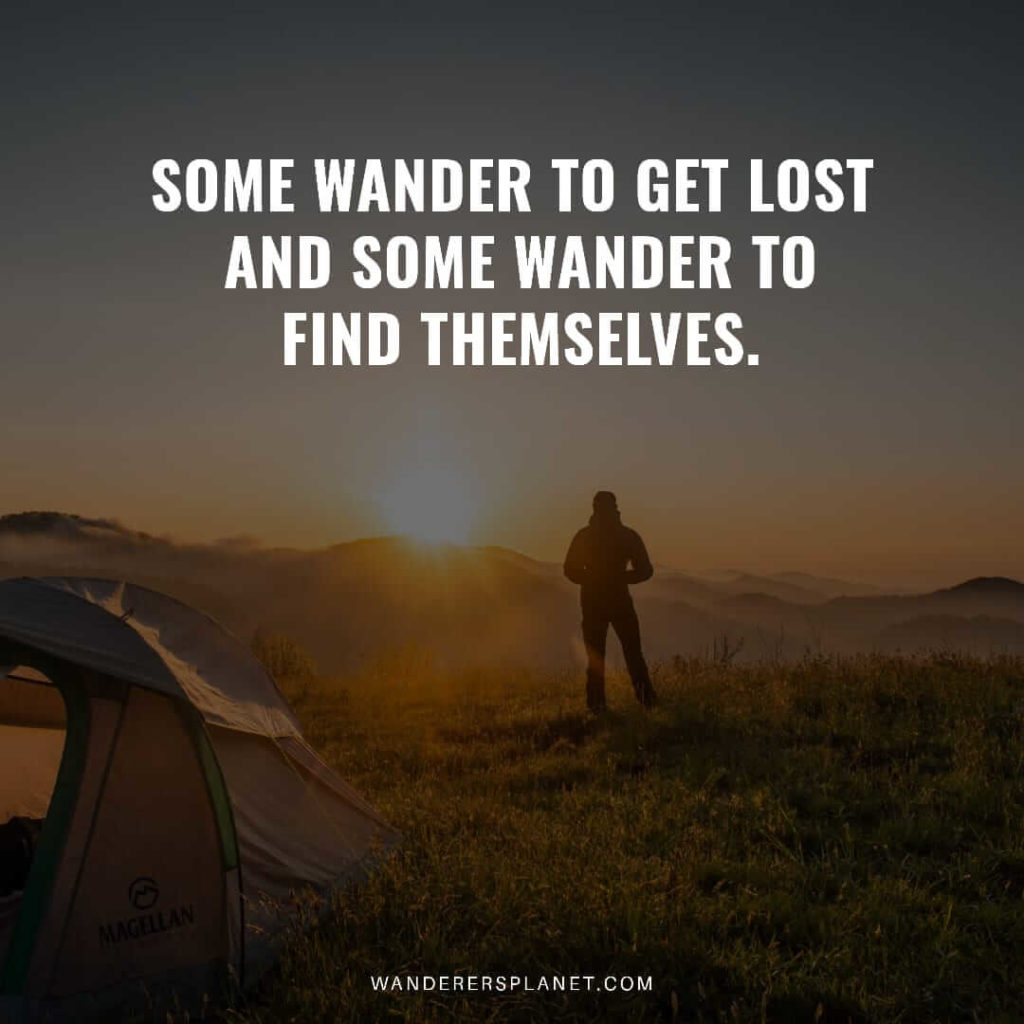
The plane ticket is the answer no matter what the problem is.

It takes courage to go where you have never been before.

For some lessons, you have to go place to place because not all lessons are taught in the classrooms.

In order to begin something new, we need to accept the end .

Give me innumerable cash and worldwide free plane tickets and you will never see me again.

Mountains are cold and the beaches are hot. Go everywhere because one life is all that we got.

Travel is the best investment for your soul.

Miles to go before I sleep.

In the end, the only trip that we regret is the one we didn’t take.

Physically I am in the office and mentally on Miami beach ordering my second mojito.

Fuck savings and book the tickets.

Good things come to those who choose to go on adventures.

Make memories all over the world.

Maturity is realising that you become rich by collecting memories, not by collecting things.

Let the road decide where the journey will end.

When the journey is beautiful, who cares about the destination .

Learn to trust the journey even when you don’t know the roads.

Life is a journey, and we all are travellers, travelling through different paths just to reach the same destination that is death.
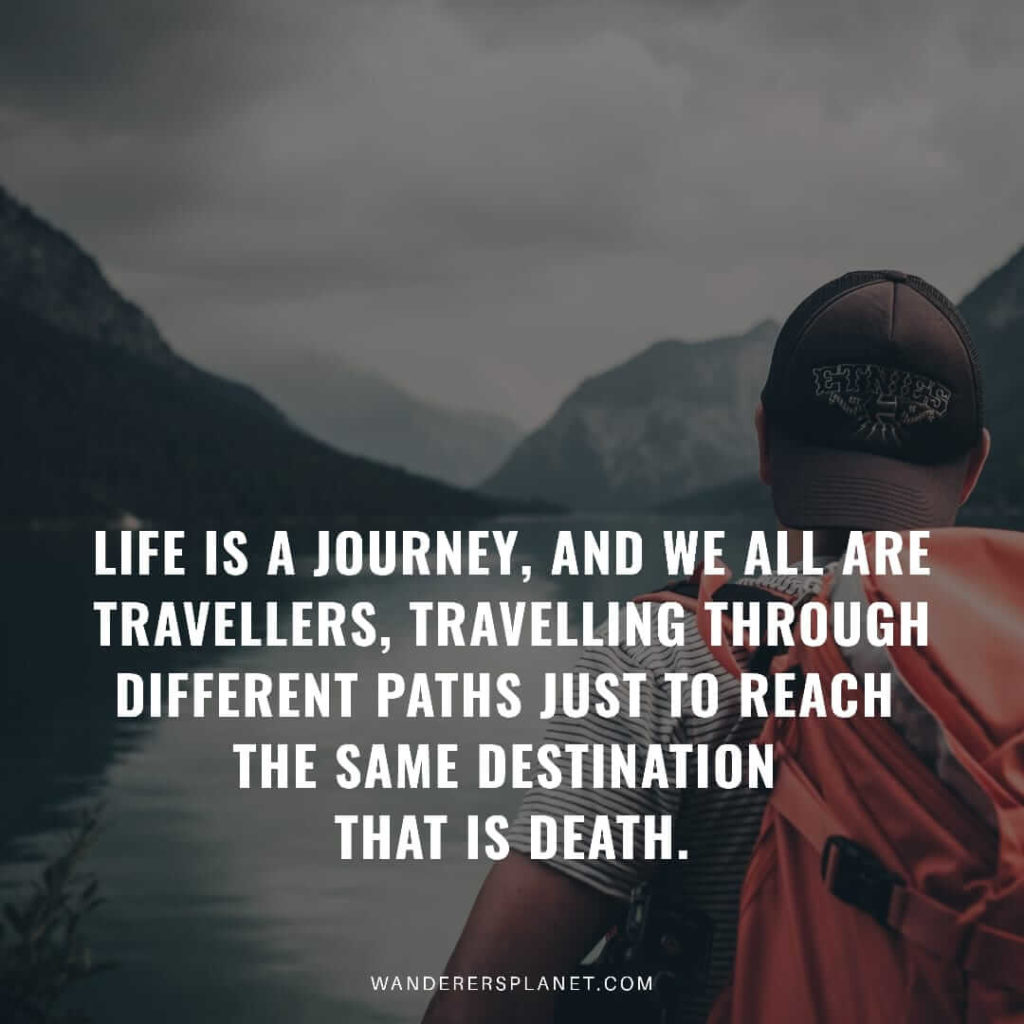
Sometimes it’s good to get lost.

You can’t buy memories but when you travel you can make a new memory on every turn.

Go as far as you can and when you reach there then go further.

Life is a journey, It doesn’t matters where the journey will end but you should know where to start.

Don’t just travel to take a break from life. Travel to give life something it deserves. Shubham Shukla

Also read: 20+ Beautiful Quotes About Waterfalls And Life
Popular Quotes About Wander
Travel is fatal to prejudice,bigotry and narrow mindness. and many of our people need sorely on these accounts. MARK TWAIN

Wanderlust: a strong desire for or impulse to wander or travel and explore the world”

All the beautiful things start at the end of fear and comfort zone. Shubham Shukla

Twenty years from now you will be more disappointed by the things that you didn’t do than by the ones you did do. So throw off the bowlines. Sail away from the safe harbour. Catch the trade winds in your sails. Explore. Dream. Discover. Sarah Frances Brown (Mother of author H Jackson Brown)

Go to heaven for the climate and hell for the company. Benjamin Franklin Wade

Death is certain so don’t worry about it but life is uncertain so as long as it lasts take charge of it. Vandit Vasudeva

To live is the rarest thing in the world. Most people exist, that is all Oscar Wilde

More Quotes About Wander
Go where you feel most alive

I don’t know why people live their life in circles when they can take the straight road and go as far as they can.
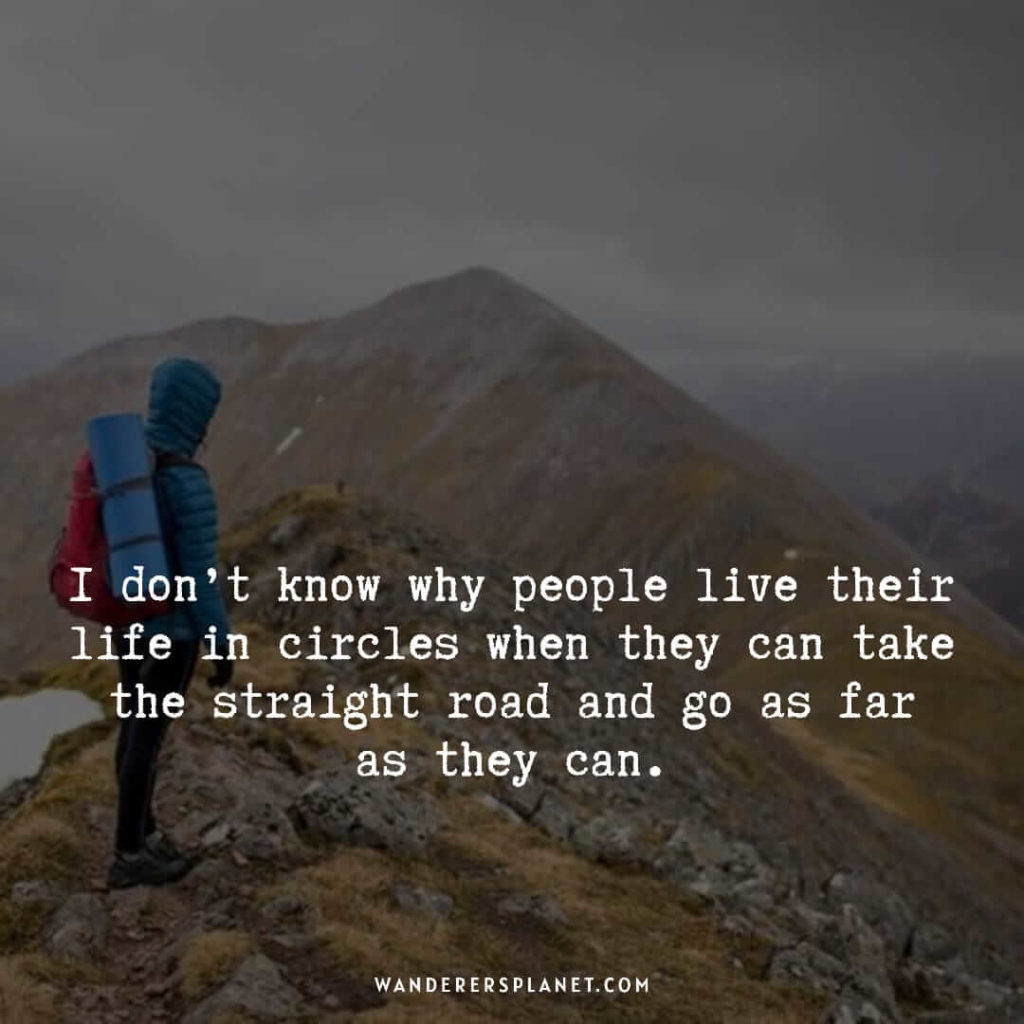
You’ll never find great things in your comfort zone

Don’t try to stop the waves, learn to surf with them

Staying home is like reading the same page of the book again and again.

Never resist your wanderlust

The Journey is the next destination

Never stop exploring

Go offline for a while and embrace the beauty and love of nature.

Unplanned trips are always the best ones.

When you travel to new places, you don’t have time to regret the past or worry about the future because all you want to do is to live the present moment.

All I want is the golden sand and a loyal heart.

Travel is not a vacation, it’s education.

If your mind can go there why can’t you?

Passion led us here.

Collect moments, not things.

Best Video Quotes About Wander
Did you love reading these 48 short wander quotes? Share your favourite wander quotes in the comment section.
Also read : 34 Beautiful adventures and journey quotes for couples.
Popular Tours
- Shimla Manali Tours
- Spiti Valley Tours
- Leh Ladakh Tours
- Kashmir Tours
- Himachal Pradesh
Popular Destinations
- Spiti Valley
Useful Links
- Terms and Conditions
- Privacy Policy
Contact Info
- Rerish Villa, Sanjauli, Shimla, 171006
- +91 9816709854
- +91 82192 15472
© 2023 Wanderersplanet | All Rights Reserved |Website & Marketing by Zerotoinfinite

COMMENTS
Mind, Body, Spontaneous. 4 Copy quote. Show source. Meditation stills the wandering mind and establishes us forever in a state of peace. Swami Muktananda. Inspiration, Meditation Practice, Forever. 45 Copy quote. Deep roots are not reached by the frost. J. R. R. Tolkien.
We would like to show you a description here but the site won't allow us.
Meditation stills the wandering mind and establishes us forever in a state of peace. Votes: 5. You must have your wits about you. No wandering minds allowed. Votes: 4. The turning of the charkha in a lifeless way will be like the turning of the beads of the rosary with a wandering mind turned away from God. Votes: 4.
Show source. To live in the world without becoming aware of the meaning of the world is like wandering about in a great library without touching the books. Dan Brown. Book, Touching, Library. 6 Copy quote. Show source. It is always wonderful to be a curious comet wandering in the galaxy of a good book. Mehmet Murat Ildan.
Calming the Wild Mind. "Don't believe everything you think. Thoughts are just that—thoughts." —Alan Lokos. "The greatest weapon against stress is our ability to choose one thought over ...
Mind Wandering Quotes. We've searched our database for all the quotes and captions related to Mind Wandering. Here they are! ... Yes, my mind was wandering. I wished I were there with someone who could bring peace to my heart someone with whom I could spend a little time without being afraid that i would lose him the next day. With that ...
The research, by psychologists Matthew A. Killingsworth and Daniel T. Gilbert of Harvard University, is described this week in the journal Science. "A human mind is a wandering mind, and a wandering mind is an unhappy mind," Killingsworth and Gilbert write. "The ability to think about what is not happening is a cognitive achievement that ...
Physical activity, like a short walk or shaking out your arms and legs in between meetings, can interrupt the cycle of mind wandering and re-energize your focus. 💙 If the mind is wandering, try bringing it back to the present moment through movement. Check out Mindful Movement with Mel Mah. 7. Use grounding exercises.
Grief is like wandering through a minefield, as my mother puts it: however carefully you tread, a sudden detonation can happen out of nowhere. A song played in a supermarket; an overheard phrase; someone in the distance who your mind cruelly suggests is your loved one for a fleeting moment.
The mind can wander while still focusing on one task. Herbert Benson. Wandering re-establishes the original harmony which once existed between man and the universe. Anatole France. One's destination is never a place, but a new way of seeing things. Henry Miller. I'll never stop wandering.
Amishi Jha studies how we pay attention: the process by which our brain decides what's important out of the constant stream of information it receives. Both external distractions (like stress) and internal ones (like mind-wandering) diminish our attention's power, Jha says -- but some simple techniques can boost it. "Pay attention to your attention," Jha says.
Find counselling to help with ADHD. The first step to mastering mind-wandering is to plan time for it. Use a schedule maker and block off time in your day to let your thoughts flow freely. You ...
As the authors of the paper elegantly summarize their work: "a human mind is a wandering mind, and a wandering mind is an unhappy mind.". On the plus side, a mind can be trained to wander less ...
Ironically, mind-wandering itself can help strengthen our ability to focus, if leveraged properly. This can be achieved using an age-old skill: meditation. Indeed, a new wave of research reveals what happens in our brains when our minds wander—and sheds light on the host of cognitive and emotional benefits that come with increased focus.
A growing body of literature suggests that we mind wander, we take our mind away from the task at hand, about 50 percent of our waking moments. These might be small little trips that we take away, private thoughts that we have. And when this mind wandering happens it can be problematic.
Wanderlust Quotes. 1. "You'll Never Know Until You Go." -Your Passport. 2. "Wherever You Go Becomes A Part Of You Somehow." -Anita Desai. 3. "The World Is Big And I Want To Have A Good Look At It Before It Gets Dark." -John Muir. 4. "Not all those who wander are lost."―.
Explore 136 Wander Quotes by authors including J. R. R. Tolkien, Jiddu Krishnamurti, and Nikola Tesla at BrainyQuote. ... It's been my experience that success in golf comes from not letting your mind wander from the shot you're about to hit. Gary Woodland. I wander around the house and write in bed, at the kitchen table, by the window, in the ...
Mind wandering is a universal human experience rooted in evolution and brain science. Creative thinking and problem-solving happen when people's minds wander. Mind wandering also allows ...
A Wandering Mind Is an Unhappy Mind. Unlike other animals, human beings spend a lot of time thinking about what is not going on around them, contemplating events that happened in the past, might happen in the future, or will never happen at all. Indeed, "stimulus-independent thought " or "mind wan-dering appears to be the brain's ...
Also known as "task-unrelated thought," mind wandering involves the decoupling of our thoughts from whatever we happen to be doing at the time. Though usually harmless, mind wandering can become ...
7. Let your mind do what it does. Sooner or later (usually sooner), your mind will wander away from the focus on the breath in the lower abdomen to thoughts, planning, daydreams, drifting along—whatever. This is perfectly okay— it's simply what minds do. It is not a mistake or a failure.
Popular Quotes About Wander. Travel is fatal to prejudice,bigotry and narrow mindness. and many of our people need sorely on these accounts. MARK TWAIN. Wanderlust: a strong desire for or impulse to wander or travel and explore the world". All the beautiful things start at the end of fear and comfort zone. Shubham Shukla.
1 quote from Jamie Kreiner: 'The Wandering Mind tracks their approaches from the outside in. It starts with monks' decisions to concentrate on God and follows them into the successive layers of their ideas and practices, moving from the world they abandoned to the communities they joined, the bodies they trained, the books they read, the meditational memories they constructed, the ...